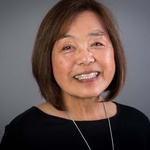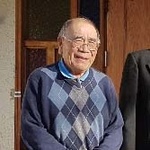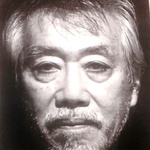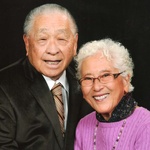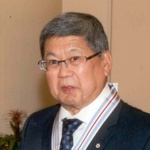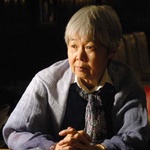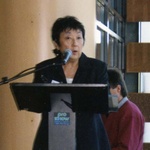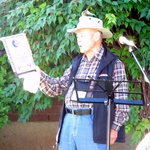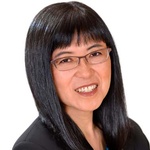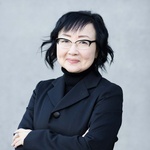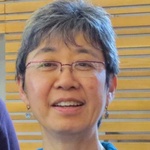I recently arrived back home after an intense four days in Victoria, BC where I attended as a member of the Landscapes of Injustice Community Council.
While there I had a rare opportunity to talk and immerse myself in an environment where I was with other Japanese Canadians (JCs), history students, and scholars whose efforts were being made towards helping to preserve important historical documents that relate to the dispossession of JCs of their property, business, and farms during WW2 which is still a little known part of Canadian history.
Back at my day job as a school teacher, I talked to my grade 5 students about what I was doing for four days in BC. I spoke candidly about my own family’s experience with racism especially as it relates to World War Two when both sides of my family, Ibuki and Hayashida, lost everything, despite being Canadians. I told my students: “Their only crime was being of Japanese descent like me, your teacher.” Awkward silence… I know that they don’t entirely understand the magnitude of what happened to JCs, but I am glad that I am the one to plant the seed of inquiry that will hopefully grow and help nurture their sense of who they are and what it really means to be Canadian.
For the information of our Nikkei friends around the world: Asian Heritage Month has been celebrated across Canada since the 1990s. In December 2001, the Senate of Canada adopted a motion proposed by Senator Vivienne Poy to officially designate May as Asian Heritage Month in Canada. In May 2002, the Government of Canada signed an official declaration to designate May as Asian Heritage Month.
May is Asian Heritage Month in Canada. What about the rest of the world?!
* * * * *
“Asian Heritage month is an opportunity for all Canadians to celebrate and to reflect on the history and the accomplishments of our Asian communities. As our communities change and become more diverse it is important to learn, honour, and preserve our histories while looking forward to the future with our younger generations. We celebrate our Asian heritage and we are proud Canadians.”
— Vivian Wakabayashi Rygnestad
Rygnestad, retired BC school principal
“Our family do mostly ‘Asian’ things in April when cherry blossoms bloom, my birthday and my grandson’s birthday are few days apart and go fishing for crabs and smelts, after I get tidal- water licence. In May, I still work in my garden growing snow peas, kabocha, cucumbers, etc. That’s my Asian Heritage.”
— Basil Izumi
Vancouver Nisei, 81, exiled to Japan then returned to Canada
“The Shadow Project was the Toronto Chapter National Association of Japanese Canadians (NAJC) contribution to the Toronto Peace Coalition commemorative event which included the participation of organizations from the Chinese and Korean communities, among many others. The slightly rueful statement I wrote reflects the segmentation that occurred at that event. On the Aug 5th eve, organizations set up information tables on the perimeter of the square. A Chinese group protesting the Nanking Massacre set up right beside the Toronto NAJC table. The following day, a young Korean woman who had attended the event planning meetings, came to the microphone during the speech-making and spoke about the Comfort Women.
Given the NAJC’s voiced support of remediation in both those issues, and the intended focus of the Aug 6th commemoration, those actions were provocative and undermining. We can come together, but remain far apart.”
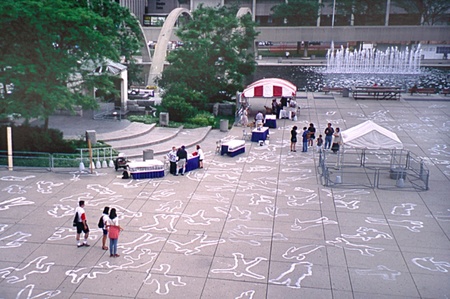
— Bryce Kanbara
Artist and curator, You Me Art Gallery, Hamilton, ON
“We think that Asian Heritage Month for May was made official by the Feds since 2002 to celebrate contributions by all minority Canadians to prove through educating all Canadians that the 1987-88 Multicultural Canada is really working for all minority Canadian groups to keep their identities and take pride in their heritages while still also taking pride belonging as ONE and as Canadian FIRST. Now the sky is the limit for all without limitations imposed.
In small towns such as our Collingwood and surroundings we haven’t even heard about Asian Heritage month. Surprising and wonderful things do happen in life though. We were just invited to CMC (Canadian Multicultural Council Asians in Ontario) Asian Heritage Month Gala Dinner in Toronto to honour Tokugi Suyama with the Outstanding Asian Canadian in our Community Award. Toke is Frank’s wife, Susan’s older brother, has a Masters degree on Social Work, University of Toronto 1954 and ever since retiring he had been volunteering at a high school and at age 91 still volunteering at Japanese Social Services, Toronto JCCC (Japanese Canadian Cultural Centre). There must be associates, family, friends, dignitaries, school board educators etc. invited we are imagining. Toke’s field is in social work but we would think that there would be many others in different other fields being honoured as well.
— Frank and Susan Maikawa
Niseis from Collingwood, ON
“The Asian Heritage Society of Manitoba has embarked on numerous projects to commemorate Asian Heritage Month in Manitoba. Events include: May 15 - Asian Film Night will be held at the Japanese Cultural Centre where we show films written and produced by Asian Canadian filmmakers are showcased. May 26 - Asian Canadian Festival at the Forks where performers share their talents in dance, music and martial arts. Takes place from noon to 7 pm continuously. May 27 - After Canada 150 Youth Focus Groups on discussing strategies in dealing with racism. This event is co-sponsored by the Canadian Race Relations Foundation, Asian Heritage Society of Manitoba and the Canadian Museum for Human Rights. At least 25 participants are between the ages of 18 to 35 and come from Indigenous, Metis, and Asian backgrounds will share their perspectives. May 27 - Closing Ceremony at the Canadian Museum for Human Rights with speeches from Museum CEO, Vivienne Poy former Senator and other government representatives and performances from a number of Asian Canadian groups including Fubuki Taiko.”
— Art Miki
Retired Manitoba elementary school principal
and Redress Movement leader
“What it means to me this year is that we can focus on FORGIVENESS, thanks to Mark Sakamoto’s book [Forgiveness: A Gift from My Grandparents] winning the CBC Canada Reads competition. What’s better than forgiveness?”
— Joy Kogawa
Poet and novelist, author of Obasan
“I have been involved with Vancouver’s Asian Heritage Month for some years. It was begun shortly after I moved to Vancouver (1995) in 1996, when I was invited to help form it by Jim Wong-chu. And it has now grown to be an annual event which focuses on various communities, and in art as two years ago I curated an exhibition held in a Tinseltown (in Chinatown) private gallery, of about 100 pieces of artwork by various Asian heritage artists.
I would say that the largest group involved here in Vancouver are of Chinese and Philippine heritage, but also S. Asian, Korean, etc., mostly immigrant artists, with not as many of Japanese Canadians/heritage participating. Most JC artists these days are pretty well established in the larger art community.
So I think it is a great way for new immigrants to share their heritage through art, but also through food. As I say, I think this yearly event is largely focused on newer immigrants and gives them opportunity to meet and participate through sharing.”
— Grace Eiko Thomson
Curator and educator
“For me, Asian Heritage Month is a time not only to showcase who we are, what we are etc to the public, but also allow us as Asians to get to know one another better and to strengthen our relationship among one another.
To this end, I have been running a program each May under the theme ASIAN HERITAGE FESTIVAL at The Multicultural Centre in Lethbridge. Various groups ie Philippines, China, Okinawa, India, Korea, Bhutan, and Nikkei Cultural Society of LA have showcased their respective culture with a variety of items on display as well as perform ie dancing, singing, fashion show. As well, we showcase one particular culture with a speaker. This year, we will be showcasing CHINA and we have a fantastic female speaker who is also a professor at UL (University of Lethbridge) address the gathering at The Centre. This year, we will be having our Asian Heritage Festival on the last Saturday of the month (May) from 11am until 3pm. Groups have the option of giving away food, selling food, or do both. Our Heritage Festival has been well received by the public.”
— Dr. George Takashima
Lethbridge, AB
“Asian Heritage Month is a festive time filled with delicious food, spectacular performance, and the beauty of arts, craft, and literature of our diverse Asian communities. For me, it is also a wonderful opportunity for learning (and remembering) the rich history of our Asian ancestors who struggled, survived, and thrived, and to acknowledge their contributions to Canada.
My mother’s side of the family came from Hiroshima, Japan in the 1800’s and settled in Cumberland on Vancouver Island in British Columbia, and my father’s side of the family came in 1906 and settled on Oikawa Island in Metro Vancouver, British Columbia. I am a yonsei, fourth generation, Japanese Canadian.”
— Lorene Oikawa
President, Greater Vancouver Japanese Canadian
Citizens’ Association (GVJCCA)
“At the Nikkei National Museum we have a mission to honour, preserve, and share Japanese culture, and Japanese Canadian history and heritage for a better Canada. We are Asian Heritage all day, every day, all year, but it’s wonderful that there is formal national recognition of Asian culture across the country, even if for just one month.”
— Sherri Kajiwara
Director/Curator, Nikkei National Museum, Burnaby, BC
“What Does Asian Heritage Month Mean to Me? I am stunned that Asian heritage is publicly recognized now. I grew up at a time when being Canadian meant being white and Anglo-Saxon. That idea was reinforced by the books, magazines, and newspapers my family and I read, what I was taught in school, as well as the images we saw on television and in the movies. We rarely saw any Asians, blacks, First Nations, Latinos, or even Eastern Europeans, except as comic stereotypes.
Things started to change in the late 1960s and 1970s when the idea of multiculturalism became more prevalent. Celebrating one’s heritage began to become more acceptable. Caravan, the once popular festival held in Toronto, meant one could travel the world with an inexpensive “passport” to pavilions featuring the food and culture of many different countries.
Soon, there were several Japanese restaurants in Toronto besides the old stalwarts like Nikko Gardens, sushi, Szechuan dishes, pad thai, and pho became widely available. Immigration brought more people to Canada from Asian countries, while simultaneously Asian culture became more popular in the west. From kitschy kung fu movies to stylistic manga, Asian culture became hip. Today, there is much more diversity in mainstream media. I see Asian faces often and everywhere now. Asian artists, baseball players, actors, and filmmakers are no longer unusual. Asian writers even merit their own festival in Vancouver, LiterAsian. Most recently, Mark Sakamoto’s book Forgiveness won CBC’s nationwide literary contest, Canada Reads.
So these days, I’m proud of my Japanese heritage. I’m glad Asian Heritage month gives me the opportunity to express that pride to the world.”
— Susan Aihoshi
Toronto Sansei writer and editor, author of
Torn Apart: The Internment Diary of Mary Kobayashi
© 2018 Norm Ibuki


